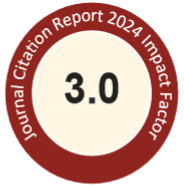Abstract
This study was to assess the microbiological quality of commercial ready-to-eat (RTE) food products sold in southern Taiwan. A total of 126 RTE food samples, including staple, meat, seafood, and vegetarian food products, were purchased from traditional markets, supermarkets, and warehouse stores. These foods were kept at refrigerator, room temperature, or hot stored at the time of sale. Aerobic plate count (APC), coliform, Escherichia coli, and Staphylococcus aureus were evaluated. APC in excess of 5 log CFU/g was obtained in traditional markets (27 samples), supermarkets (20 samples), and warehouse stores (15 samples). Seafood products were the most contaminated compared to staple products, meat products, or vegetarian foods. The highest incidence of APC greater than 5 log CFU/g was detected from food products stored at room temperature. Refrigerator stored food products were the second incidence, followed by hot kept food products. No significant differences were found for coliform and E. coli among the various markets or food types (p > 0.05). RTE food products sold in the traditional market, supermarkets, and warehouse stores contaminated with S. aureus were 19.0%, 12.7%, and 9.5%, respectively. The percentage of samples over-contaminated with S. aureus was 15.9% (seafood), 9.5% (staple and meat products), and 6.3% (vegetarian food products). RTE food products stored at room temperature had the highest contamination of S. aureus, followed by refrigerator and hot stored food products (p < 0.05).
Recommended Citation
Wei, Q.-K.; Hwang, S.-L.; and Chen, T.-R.
(2006)
"Microbiological quality of ready-to-eat food products in southern Taiwan,"
Journal of Food and Drug Analysis: Vol. 14
:
Iss.
1
, Article 17.
Available at: https://doi.org/10.38212/2224-6614.2512

